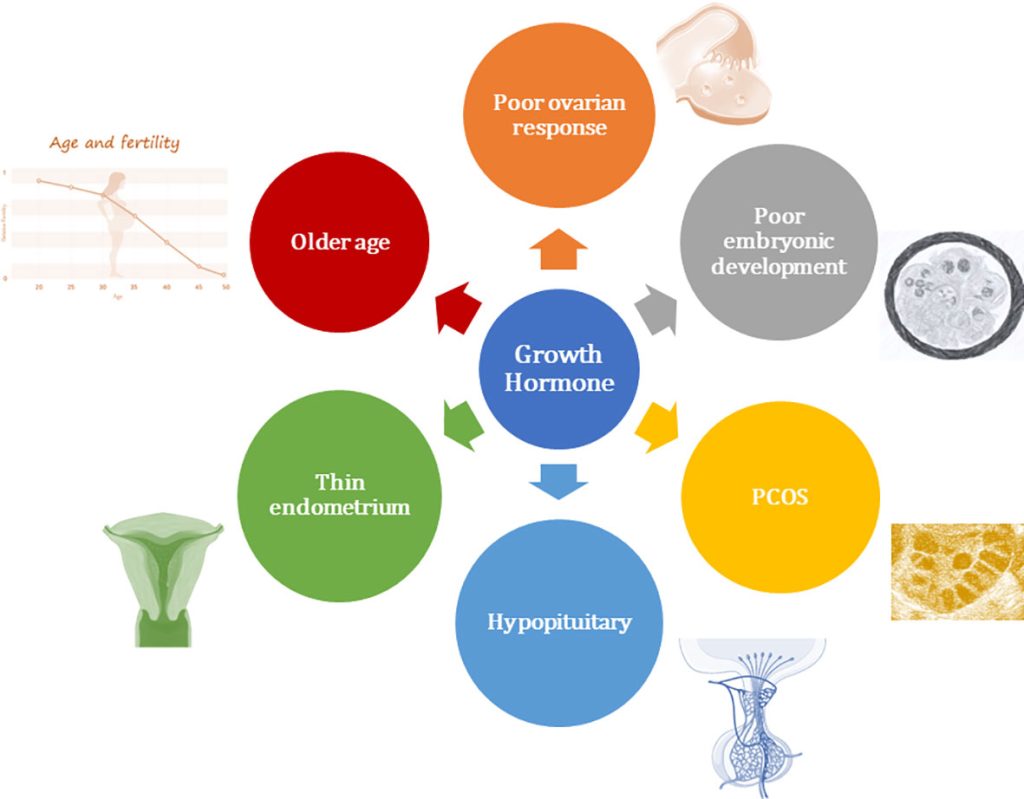Uncategorized
HGH For Fertility
IS GROWTH HORMONE GOOD FOR FERTILITY?
Many people and couples place a high value on fertility. The urge to conceive and raise a family is a deeply embedded human goal. HGH For Fertility
While several factors influence fertility, one hormone in particular has received a lot of attention in recent years: growth hormone (GH).
In this post, we will look at the complex relationship between growth hormone and fertility, shining light on the potential benefits and considerations for people looking to improve their fertility.
UNDERSTANDING GROWTH HORMONE
Before digging into the relationship between growth hormone and fertility, it is critical to first understand what growth hormone is and its basic activities in the body. Buy Saizen HGH Online
Growth hormone, also known as somatotropin, is a peptide hormone generated by the pituitary gland, a small but important gland near the base of the brain. HGH For Fertility
GH stimulates growth, cell reproduction, and regeneration.
During childhood and adolescence, it is largely responsible for promoting linear development, which ensures that individuals attain their genetically assigned height.
In maturity, GH plays critical roles in maintaining appropriate body composition, regulating metabolism, and promoting general well-being. HGH For Fertility
HGH IMPACT ON REPRODUCTIVE HEALTH
The link between growth hormone and reproductive health is intricate and complicated.
While GH primarily promotes growth and development, it indirectly regulates fertility via numerous mechanisms:
FITZGERAL DEVELOPMENT:
The ovaries have growth hormone receptors, and it has been demonstrated that GH promotes the growth of ovarian follicles.
The tiny, fluid-filled sacs that hold eggs inside the ovaries are called follicles. These follicles must develop and expand in order for ovulation to be effective and for there to be subsequent fertility.
OVARIAN FUNCTION:
GH might help the ovaries perform at their best, which includes producing sex hormones like progesterone and estrogen.
These hormones play a crucial role in both uterine lining preparation for embryo implantation and menstrual cycle regulation. HGH For Fertility
ENDOMETRIAL HEALTH:
It has been proposed that GH encourages the growth of a healthy endometrial lining.
Throughout pregnancy, a thick and responsive endometrial lining is essential for the successful implantation of embryos.
STRESS REDUCTION:
Because chronic stress throws off hormone balance, it can have a negative effect on fertility. According to certain research, GH may aid in stress reduction and general wellbeing enhancement. It may have a knock-on effect on fertility.
THE POTENTIAL BENEFITS OF GROWTH HORMONE IN FERTILITY
Growth hormone, which affects many aspects of reproductive health, has been studied as a possible means of enhancing fertility under specific conditions. The following are a few possible advantages of growth hormone for fertility:
- Enhanced Ovulation: By encouraging follicular development, growth hormone therapy may help women who suffer from irregular or anovulatory cycles (lack of ovulation) trigger ovulation.
- Better Egg Quality: Good egg quality is essential for effective fertilization and embryo development, and GH may have a beneficial effect on it. This can be especially helpful for older mothers, as their egg quality tends to drop with age.
- Enhances Success Rate of IVF: Couples experiencing infertility frequently turn to in vitro fertilization (IVF), a type of assisted reproductive technology. Growth hormone supplementation to the IVF process may improve embryo quality and implantation rates, according to certain research.
- Reducing the Impact of Growth Hormone insufficiency: GH replacement therapy can help people with growth problems as well as underlying reproductive health difficulties when they have been diagnosed with growth hormone insufficiency.
- Potential Benefits for Male Fertility: Growth hormones may support healthy sperm development and function, which may contribute to male fertility. However, a large portion of research has focused on female fertility.
CONSIDERATIONS AND CAUTIONS
Even though growth hormone may have intriguing effects on fertility, it’s important to approach this subject objectively. There are a few things to think about and be cautious about:
INDIVIDUAL VARIATION:
what is effective for one person may not be effective for another. Growth hormones can affect fertility differently in different people.
LACK OF CONSENSUS:
Regarding the use of growth hormone as a reproductive treatment, the medical profession is not at an agreement. More data is required to confirm the safety and efficacy of this treatment, which is still under investigation.
COST AND AVAILABILITY:
Growth hormone treatment is not always affordable and may not be available to all patients. The treatment’s insurance coverage may also differ.
POTENTIAL RISKS:
Growth hormone therapy has possible hazards and side effects, such as fluid retention, joint pain, and blood sugar fluctuations, just like any other medical treatment.
CONSULTATION WITH A SPECIALIST:
It is crucial to speak with a reproductive endocrinologist or fertility specialist if you are thinking about growth hormone therapy for fertility. They can evaluate your unique circumstances and offer advice based on the most recent scientific findings and accepted medical practices.
CONCLUSION
The process of becoming pregnant is a very personal one. The use of growth hormones to increase fertility is a developing area of reproductive medicine.
Although there is evidence that growth hormone may improve some elements of fertility, there is no one-size-fits-all answer when it comes to fertility.
When it comes to their particular situation, individuals and couples who are having trouble getting pregnant should collaborate closely with medical professionals to investigate all of the choices that are accessible, including growth hormone therapy.
Growth hormone use in fertility treatments should ultimately be decided upon after significant thought, expert counsel, and a comprehensive assessment of the advantages and disadvantages.
The choices open to those hoping to fulfill their desire of children will change as our knowledge of the complex interaction between growth hormone and fertility grows.

